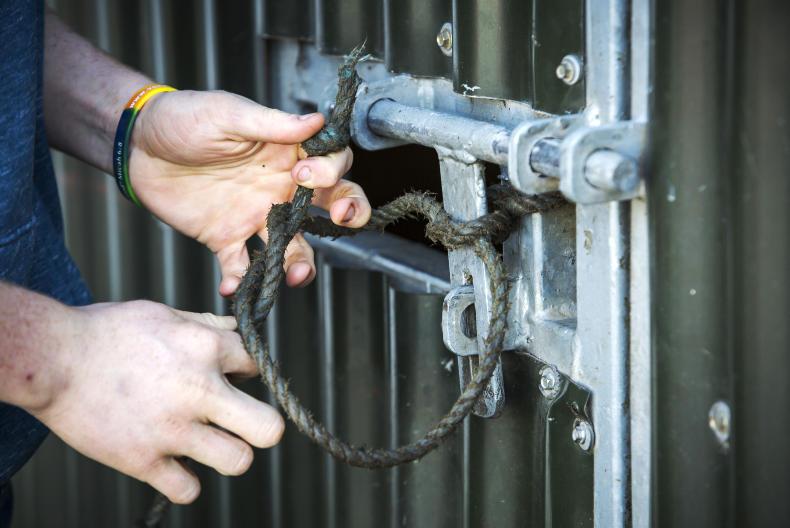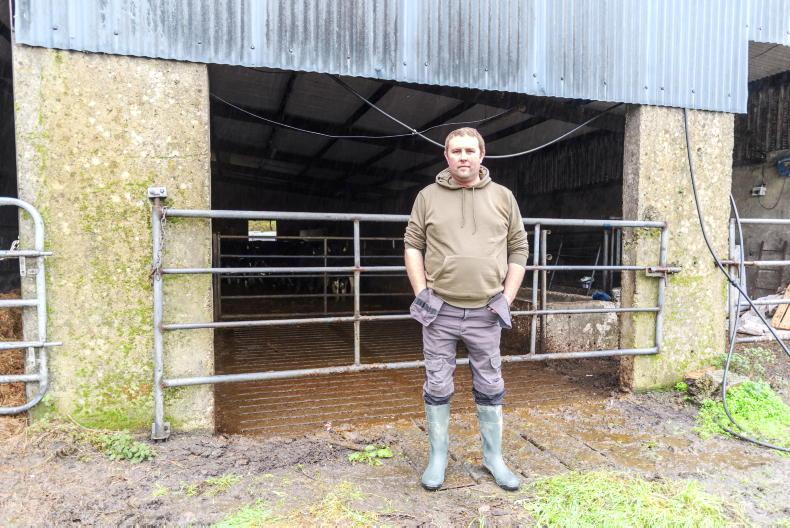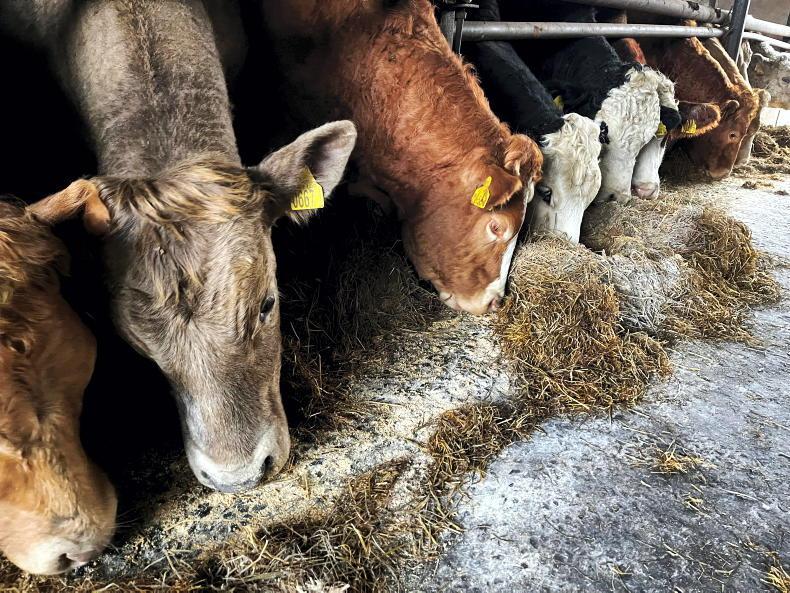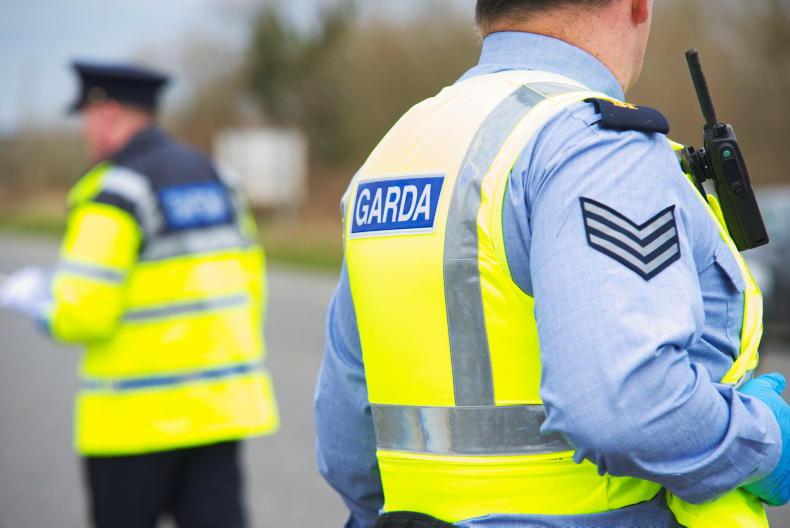In the event that individuals such as animal rights activists enter farm premises without consent or permission a number of legal issues arise.
1. The Occupiers Liability Act 1995.
A trespasser is defined at Section 1(1) of the 1995 Act as an entrant other than a recreational user or visitor.
The landowner has a duty of care not to be reckless towards the trespasser. The landowner may also not be liable for any damage or injury unintentionally caused to a person who enters onto land or premises if they have the intention of committing an offence. This will be decided by the court based on the facts of the case.
If a group of protesters enters onto a property and injure themselves, it is unlikely that they will be able to successfully bring a claim against the landowner or occupier. However, if the occupier was to direct them out a certain way and there was a danger or hazard along the way which the landowner knew or should have known of and that they suffered injury then there might be a liability.
2. Health & Safety at Work Act 2005
An employer has a duty of care to their employees.
Care needs to be taken that in the event of protesters coming on that the employees are not in a position that they are injured by the actions of the protesters. For example, an employer would want to be careful about directing employees to remove or confront protesters.
3. Criminal Law (Defence & The Dwelling) Act 2011
This Act allows the homeowner to defend their house against those who might enter illegally.
However, this only applies to the dwelling and would not apply to farm premises.
Section 2 (1) of the Act states that it shall not be an offence for a person when his or her dwelling are for a person who is a lawful occupant in a dwelling to use force against another person when the property of another person where:
a) he or she believes the other person is entering the dwelling as a trespasser for the purpose of committing a criminal act, and
b) the force used to be only such as is reasonable in the circumstances as he or she believes them to be –
To protect himself or herself or another person present in the dwelling from injury, assault, detention or debt caused by a criminal act.To protect his or her property or the property of another person from appropriation, destruction or damage caused by a criminal act.To prevent the commission of a crime or to effect, or assist in effecting, lawful arrest.The question of reasonable force will depend upon the circumstances. As stated, this only applies to the dwelling house and its curtilage. Protesters engaging in “peaceful protest” at the farm buildings will not tick the necessary boxes to allow an individual to use reasonable force under the 2011 Act to defend their dwelling.
4. Housing Miscellaneous Provisions Act 2002 (Section 24)
This inserted a new clause in the Criminal Justice (Public Order) Act 1994.
Section 19(c) states as follows:
19(c)-(i) a person, without the duly given consent of the owner, shall not:
a) enter and occupy any land, or
b) bring onto a place on any land any object,
Where such entry or occupation or the bringing onto or placing on the land such object as likely to:
i) Substantially damage the land. ii) Substantially and prejudicially affect any amenity in respect of the land.iii) Prevent persons entitled to use the land or any amenity in respect of the land for making reasonable use of the land or amenity.iv) Otherwise render the land or any amenity in respect of the land, or the lawful use of the land or any amenity in respect of the land unsanitary or unsafe.v) Substantially interfere with the land, any amenity in respect of the land, the lawful use of the land or any amenity in respect of the land.This legislation was brought in primarily to deal with new age travellers and also members of the travelling community who were bringing caravans onto private property.
Under certain conditions it could be used in relation to activists protesting on private property.
Section 19(c)(iii) allows members of An Garda Síochána, where they have reason to believe that the person is committing or has committed an offence under this Act and they may:
a) Demand of the person their name and address.
b) Direct the person to leave the land concerned and to remove from the land items belonging to that person or that is under his or her control.
c) Shall inform the person of the nature of the offence of which the person has been suspected.
If the person fails to comply, they shall be guilty of an offence.
19(e) allows a member of the police to arrest without warrant a person:
a) Who fails or refuses to give his or her name and address when requested or demanded under the Act or gives a name and address which the Garda has reasonable grounds to believe is false and misleading.
b) Who fails to comply with the direction given under Section 19(c)(iii)(b) ie to leave the premises
c) Who commits an act under 19(c)(i).
Unfortunately, I have had personal experience of reading this section or giving it to a member from Garda Síochána when they have been requested to move individuals who have trespassed the property. On two occasions, the Garda denied that this legislation existed. When it was handed to them they still denied that they could act on it.
5. Criminal Justice (Public Order) Act 1994
There are two provisions in this Act that may be irrelevant – Section 11 and Section 12.
Section 11 – entering buildings etc with intent to commit an offence.
11(i) It shall be an offence for a person –
a) To enter any building or curtilage of any building or any part of such a building or curtilage as a trespasser, or
b) Be within the vicinity of any such building or curtilage or any part of such a building or curtilage for the purpose of trespassing thereon
in circumstances giving rise to the reasonable inference that such entry or presence was with the intent to commit an offence or with intent to unlawfully interfere with any property situate therein.
A person guilty under this section shall be liable on summary conviction to a fine of €1,000 or up to six months’ imprisonment, or both.
Paragraph 13 – Trespass on Building
Section 13(1) states it shall be an offence for a person without reasonable excuse to trespass on any building or the curtilage thereof in such manner as causes or is likely to fear in another person.
13(2)(a) Where a member of An Garda Siochana finds a person in a place where this section relates and suspects that the person is or has been acting in a manner contrary to provisions of the section then the police may require them to desist from acting in such a manner and to leave immediately the vicinity in a peaceful or orderly manner.
If the person fails to comply without lawful authority or reasonable excuse the direction given by An Garda Síochána that they should be guilty of an offence.
Section 11 and Section 13 of the 1994 Act are the ones that the police can most likely avail of to deal with protesters on a site.
However, there is a practical reality that where there is no immediate risk of violence or threat or danger to individuals or members of the public then the police are more likely to try and wait and allow the protest to progress and terminate peacefully.
The police will have a certain reticence to endeavour to remove large groups of individuals from a particular premises.
If a farmer or landowner became aware of the possibility of a group of protesters attending at their premises or if they were being observed or watched in relation to this they may have grounds to bring an application to the court to seek an injunction preventing the individuals trespassing on the property particularly in cases of security breaches.
If it is an ongoing issue with individuals watching and besetting the property or interfering with people’s comings and goings then an injunction could be obtained to restrict the individuals from blockading or interfering or indeed watching and besetting the property.
However, there will always be issues of enforcement and identifying the various parties and this can be a lengthy and often costly process.
Farmers should have a contingency plan in place in the event of individuals attending at their premises.
Farmers are entitled to use reasonable force to remove individuals from their property who are trespassing.
However, they must be given an opportunity to leave peacefully. They are entitled to take a reasonable route out of the property and cannot necessarily be forced to go back the way they came in.
The courts allow the use of reasonable force. For example, security guards or bouncers are entitled to use reasonable force to eject people from premises.
However, farmers/landowners would need to be careful in relation to this as if excessive force is used the landowner could find themselves guilty of assault and liable to have a potential claim for personal injuries.
In addition, if a member of staff is injured during the extraction of a protester from the farm, they may also be in a position of bringing a personal injury claim in that they were not properly trained and there was a breach in health and safety legislation. Also, they themselves may face a charge of assault against the protester in the event that the protester makes a formal complaint and the police believe that excessive force had been used.
If individuals have been removed it would be prudent to have video or CCTV evidence so that the level of force that has been used to remove the individual will be shown to the court as being reasonable under the circumstances.
I note it has also been suggested that the protesters would be sprayed with pig slurry or other waste. If this was done intentionally it would be deemed to be an assault.
It may well be that someone would seek to clean the premises whilst the protesters are there. As long as there was no assault per se on the protesters this is an option. Again, it needs to be very carefully executed as the boundary between premises being cleaned and the individuals being assaulted is quite a thin one.
The Occupiers Liability Act 1995.Limited duty of care to a trespasser under Occupiers Liability Act.Criminal Justice (Public Order) Act 1994.S11 - Gardaí can arrest if trespass on farm of lands with intent to commit an offenseS13 - Gardaí can also arrest a trespasser if they, without reasonable, excuse trespass on any building or the curtilage thereof in such manner as causes or is likely to fear in another person.Housing Miscellaneous Provisions Act 2002 (Section 24).Gardaí can arrest if a person, without the duly given consent of the owner, enters and occupies any land or brings onto or places on any land any object where the entry or occupation is likely to substantially damage the land, impact upon it or prevent persons using their land.
Criminal Law (Defence and The Dwelling) Act 2011: This allows the homeowner to defend their house against those who might enter illegally. However, this only applies to the dwelling and its curtilage and is unlikely to farm premises.Reasonable force: Farmers are entitled to use reasonable force to remove individuals from their property who are trespassing though they must be given an opportunity to leave peacefully. They are entitled to take a reasonable route out of the property and cannot necessarily be forced to go back the way they came in. If excessive force is used the landowner could find themselves guilty of assault and liable to have a potential claim for personal injuries. Read more
Animal rights protestors target Blackpool pig farm
Security a new concern for pig farmers after vegan invasion
In the event that individuals such as animal rights activists enter farm premises without consent or permission a number of legal issues arise.
1. The Occupiers Liability Act 1995.
A trespasser is defined at Section 1(1) of the 1995 Act as an entrant other than a recreational user or visitor.
The landowner has a duty of care not to be reckless towards the trespasser. The landowner may also not be liable for any damage or injury unintentionally caused to a person who enters onto land or premises if they have the intention of committing an offence. This will be decided by the court based on the facts of the case.
If a group of protesters enters onto a property and injure themselves, it is unlikely that they will be able to successfully bring a claim against the landowner or occupier. However, if the occupier was to direct them out a certain way and there was a danger or hazard along the way which the landowner knew or should have known of and that they suffered injury then there might be a liability.
2. Health & Safety at Work Act 2005
An employer has a duty of care to their employees.
Care needs to be taken that in the event of protesters coming on that the employees are not in a position that they are injured by the actions of the protesters. For example, an employer would want to be careful about directing employees to remove or confront protesters.
3. Criminal Law (Defence & The Dwelling) Act 2011
This Act allows the homeowner to defend their house against those who might enter illegally.
However, this only applies to the dwelling and would not apply to farm premises.
Section 2 (1) of the Act states that it shall not be an offence for a person when his or her dwelling are for a person who is a lawful occupant in a dwelling to use force against another person when the property of another person where:
a) he or she believes the other person is entering the dwelling as a trespasser for the purpose of committing a criminal act, and
b) the force used to be only such as is reasonable in the circumstances as he or she believes them to be –
To protect himself or herself or another person present in the dwelling from injury, assault, detention or debt caused by a criminal act.To protect his or her property or the property of another person from appropriation, destruction or damage caused by a criminal act.To prevent the commission of a crime or to effect, or assist in effecting, lawful arrest.The question of reasonable force will depend upon the circumstances. As stated, this only applies to the dwelling house and its curtilage. Protesters engaging in “peaceful protest” at the farm buildings will not tick the necessary boxes to allow an individual to use reasonable force under the 2011 Act to defend their dwelling.
4. Housing Miscellaneous Provisions Act 2002 (Section 24)
This inserted a new clause in the Criminal Justice (Public Order) Act 1994.
Section 19(c) states as follows:
19(c)-(i) a person, without the duly given consent of the owner, shall not:
a) enter and occupy any land, or
b) bring onto a place on any land any object,
Where such entry or occupation or the bringing onto or placing on the land such object as likely to:
i) Substantially damage the land. ii) Substantially and prejudicially affect any amenity in respect of the land.iii) Prevent persons entitled to use the land or any amenity in respect of the land for making reasonable use of the land or amenity.iv) Otherwise render the land or any amenity in respect of the land, or the lawful use of the land or any amenity in respect of the land unsanitary or unsafe.v) Substantially interfere with the land, any amenity in respect of the land, the lawful use of the land or any amenity in respect of the land.This legislation was brought in primarily to deal with new age travellers and also members of the travelling community who were bringing caravans onto private property.
Under certain conditions it could be used in relation to activists protesting on private property.
Section 19(c)(iii) allows members of An Garda Síochána, where they have reason to believe that the person is committing or has committed an offence under this Act and they may:
a) Demand of the person their name and address.
b) Direct the person to leave the land concerned and to remove from the land items belonging to that person or that is under his or her control.
c) Shall inform the person of the nature of the offence of which the person has been suspected.
If the person fails to comply, they shall be guilty of an offence.
19(e) allows a member of the police to arrest without warrant a person:
a) Who fails or refuses to give his or her name and address when requested or demanded under the Act or gives a name and address which the Garda has reasonable grounds to believe is false and misleading.
b) Who fails to comply with the direction given under Section 19(c)(iii)(b) ie to leave the premises
c) Who commits an act under 19(c)(i).
Unfortunately, I have had personal experience of reading this section or giving it to a member from Garda Síochána when they have been requested to move individuals who have trespassed the property. On two occasions, the Garda denied that this legislation existed. When it was handed to them they still denied that they could act on it.
5. Criminal Justice (Public Order) Act 1994
There are two provisions in this Act that may be irrelevant – Section 11 and Section 12.
Section 11 – entering buildings etc with intent to commit an offence.
11(i) It shall be an offence for a person –
a) To enter any building or curtilage of any building or any part of such a building or curtilage as a trespasser, or
b) Be within the vicinity of any such building or curtilage or any part of such a building or curtilage for the purpose of trespassing thereon
in circumstances giving rise to the reasonable inference that such entry or presence was with the intent to commit an offence or with intent to unlawfully interfere with any property situate therein.
A person guilty under this section shall be liable on summary conviction to a fine of €1,000 or up to six months’ imprisonment, or both.
Paragraph 13 – Trespass on Building
Section 13(1) states it shall be an offence for a person without reasonable excuse to trespass on any building or the curtilage thereof in such manner as causes or is likely to fear in another person.
13(2)(a) Where a member of An Garda Siochana finds a person in a place where this section relates and suspects that the person is or has been acting in a manner contrary to provisions of the section then the police may require them to desist from acting in such a manner and to leave immediately the vicinity in a peaceful or orderly manner.
If the person fails to comply without lawful authority or reasonable excuse the direction given by An Garda Síochána that they should be guilty of an offence.
Section 11 and Section 13 of the 1994 Act are the ones that the police can most likely avail of to deal with protesters on a site.
However, there is a practical reality that where there is no immediate risk of violence or threat or danger to individuals or members of the public then the police are more likely to try and wait and allow the protest to progress and terminate peacefully.
The police will have a certain reticence to endeavour to remove large groups of individuals from a particular premises.
If a farmer or landowner became aware of the possibility of a group of protesters attending at their premises or if they were being observed or watched in relation to this they may have grounds to bring an application to the court to seek an injunction preventing the individuals trespassing on the property particularly in cases of security breaches.
If it is an ongoing issue with individuals watching and besetting the property or interfering with people’s comings and goings then an injunction could be obtained to restrict the individuals from blockading or interfering or indeed watching and besetting the property.
However, there will always be issues of enforcement and identifying the various parties and this can be a lengthy and often costly process.
Farmers should have a contingency plan in place in the event of individuals attending at their premises.
Farmers are entitled to use reasonable force to remove individuals from their property who are trespassing.
However, they must be given an opportunity to leave peacefully. They are entitled to take a reasonable route out of the property and cannot necessarily be forced to go back the way they came in.
The courts allow the use of reasonable force. For example, security guards or bouncers are entitled to use reasonable force to eject people from premises.
However, farmers/landowners would need to be careful in relation to this as if excessive force is used the landowner could find themselves guilty of assault and liable to have a potential claim for personal injuries.
In addition, if a member of staff is injured during the extraction of a protester from the farm, they may also be in a position of bringing a personal injury claim in that they were not properly trained and there was a breach in health and safety legislation. Also, they themselves may face a charge of assault against the protester in the event that the protester makes a formal complaint and the police believe that excessive force had been used.
If individuals have been removed it would be prudent to have video or CCTV evidence so that the level of force that has been used to remove the individual will be shown to the court as being reasonable under the circumstances.
I note it has also been suggested that the protesters would be sprayed with pig slurry or other waste. If this was done intentionally it would be deemed to be an assault.
It may well be that someone would seek to clean the premises whilst the protesters are there. As long as there was no assault per se on the protesters this is an option. Again, it needs to be very carefully executed as the boundary between premises being cleaned and the individuals being assaulted is quite a thin one.
The Occupiers Liability Act 1995.Limited duty of care to a trespasser under Occupiers Liability Act.Criminal Justice (Public Order) Act 1994.S11 - Gardaí can arrest if trespass on farm of lands with intent to commit an offenseS13 - Gardaí can also arrest a trespasser if they, without reasonable, excuse trespass on any building or the curtilage thereof in such manner as causes or is likely to fear in another person.Housing Miscellaneous Provisions Act 2002 (Section 24).Gardaí can arrest if a person, without the duly given consent of the owner, enters and occupies any land or brings onto or places on any land any object where the entry or occupation is likely to substantially damage the land, impact upon it or prevent persons using their land.
Criminal Law (Defence and The Dwelling) Act 2011: This allows the homeowner to defend their house against those who might enter illegally. However, this only applies to the dwelling and its curtilage and is unlikely to farm premises.Reasonable force: Farmers are entitled to use reasonable force to remove individuals from their property who are trespassing though they must be given an opportunity to leave peacefully. They are entitled to take a reasonable route out of the property and cannot necessarily be forced to go back the way they came in. If excessive force is used the landowner could find themselves guilty of assault and liable to have a potential claim for personal injuries. Read more
Animal rights protestors target Blackpool pig farm
Security a new concern for pig farmers after vegan invasion









SHARING OPTIONS